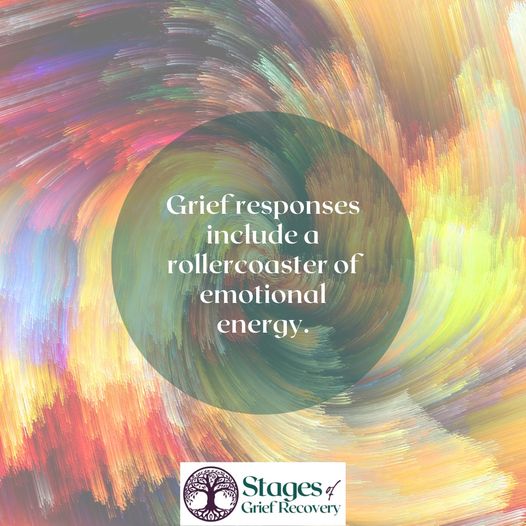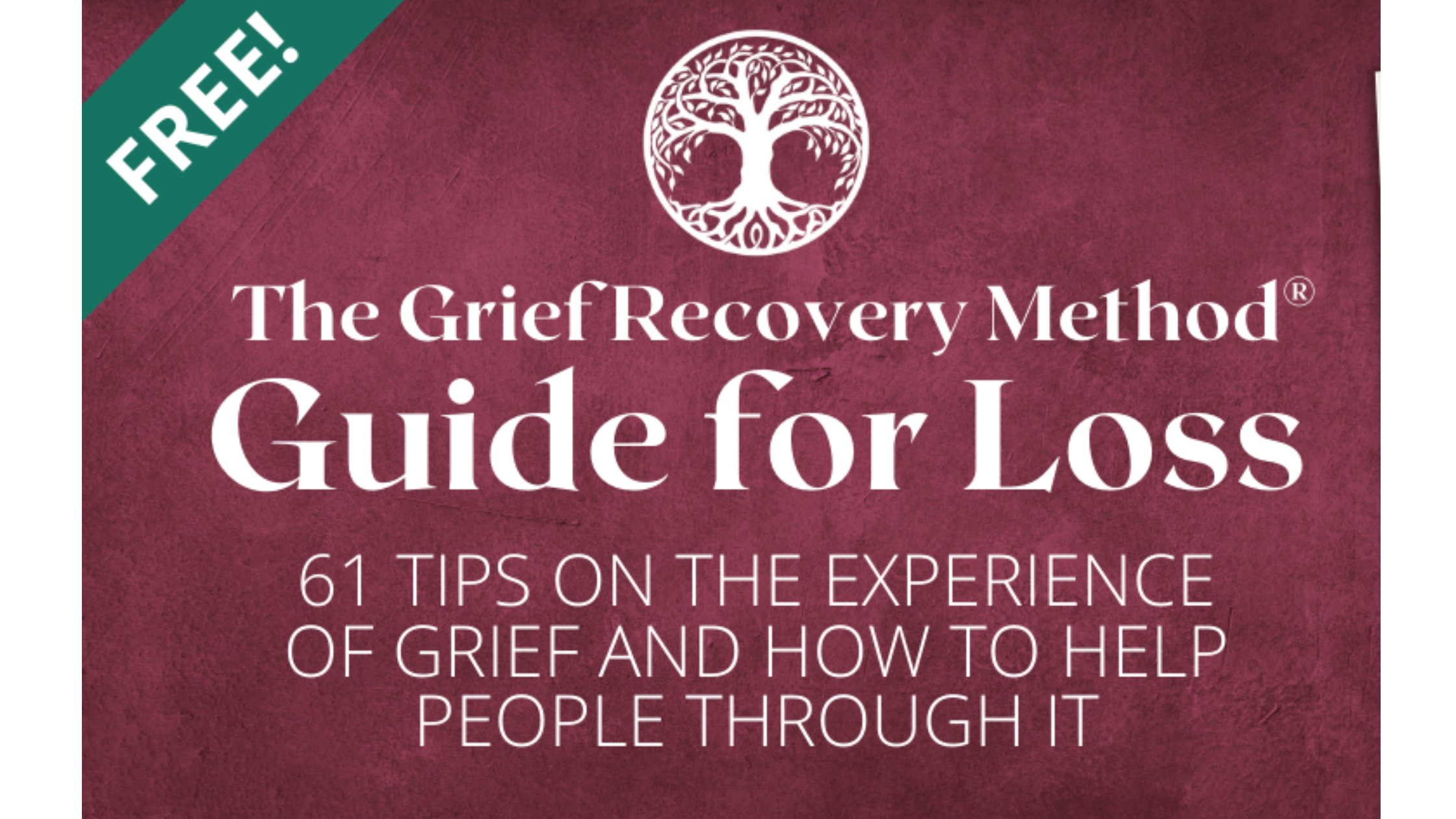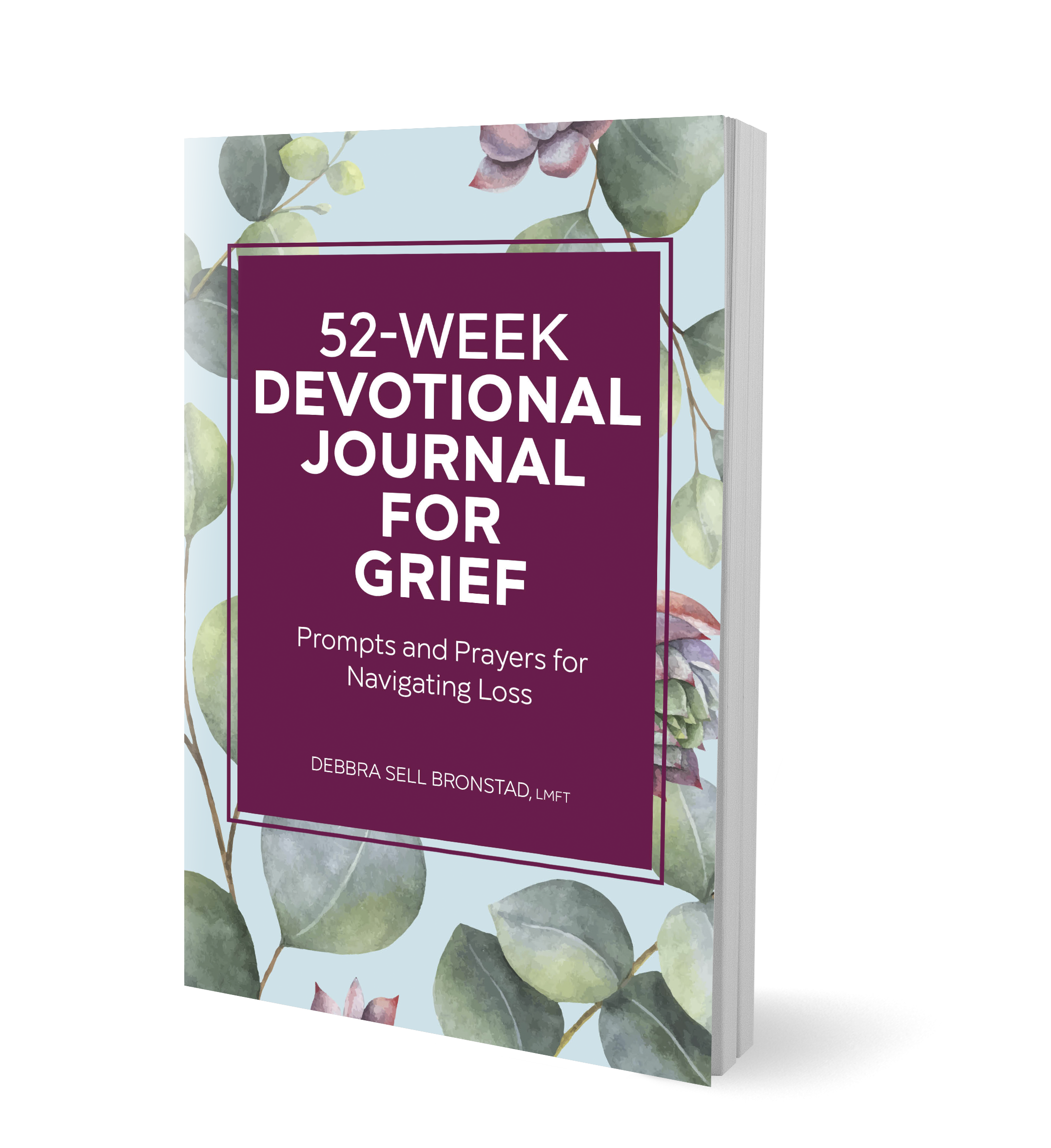The 5 Stages of Grief

The 5 Stages of Grief were first proposed by Elizabeth Kubler-Ross. In her book, On Death and Dying, she describes her experience with patients diagnosed with a terminal disease. She organizes her observations into five stages of dying that begin when a patient first learns he or she has a terminal illness.
In her final book, On Grief and Grieving,
Kübler-Ross substituted the term “five stages of loss” and “five stages
of grief” for her previous “stages of dying.” However, her research was
not with those left behind after loss.
Although the stages of grief do not accurately describe the grief process for most people, they are discussed here because it is popular for people to characterize their own or others' grief experience with these stages.
Grief responses include a roller coaster of emotional energy. Other common grief symptoms are on this page. One common grief symptom that is not mentioned in the stages of grief is anxiety.
Anxiety is a common symptom of grief that acts as a cover for a myriad
of emotional reactions to grief. Grief coaching can help sort out the
emotional turmoil and help relieve the sources of anxiety.
The 5 stages of grief:
Denial. “This can’t be happening to me.” When the news first comes that a loved one has died, those left behind often feel a sense of shock or difficulty taking in the news. This is especially true if one was not present at the time of death. An unexpected death, such as by an accident, can be especially difficult to comprehend. Some grievers admit to entertaining the thought in their minds that their deceased spouse or loved one is “on a business trip” in order to get through the responsibilities of the day.
Denial can also refer to the holding back of feelings surrounding grief. When others ask how you are, you may reply, "I'm fine," when in reality all kinds of emotions are churning below the surface. Sometimes we face pressure from family and friends who say, "you're so strong" which can contribute to putting on a brave face when our heart is breaking.
Anger is not a universal
experience for those going through a loss. In Kübler-Ross’ final work
there is evidence to suggest that she carried a great deal of anger
throughout her life that she did not deal with until her later years.
Many people are sad about the loss of their loved one and never angry
about it. Some people are angry. The anger needs to be heard and validated. There is a reason for that anger that needs to be acknowledged.
Bargaining may be a common characteristic of
those who discover they have a terminal disease. They bargain with
promises to God in exchange for, hopefully, more time on earth. However,
this does not apply to those grieving a loss of a loved one. Those
left behind know that there is nothing they can offer that will bring
back their loved one from the grave.
Depression is an
interesting label. Many of the symptoms common to depression occur for
those who are grieving a loss. There may be difficulty concentrating, a
lack of energy or motivation, change in eating or sleeping habits and
sadness. However, when the symptoms are due to the normal human reaction
to loss, they should not be labeled as depression. The exception would
be someone who is clinically depressed before the loss occurs, will
likely to be clinically depressed and need profession treatment after
the loss. Grief is the normal reaction to the loss of a relationship or
significant attachment.
Acceptance. While there are
issues of acceptance that must be addressed for the bereaved to heal
their heart and move into peace, joy and happiness in their life, this
is not a stage that all those who grieve will automatically pass
through. Acceptance involves a choice to take a realistic look at the
good and bad of the relationship and address the emotions that are
involved in these memories.
The idea of 5 stages of grief suggests that if one is in one of these stages there is nothing they can do but wait until they pass into the next stage. This is a damaging myth.
If
grief is troubling you, there is something you can do about it. You do
not need to wait it out. You can enjoy peace, love and happiness again. You can have freedom from regrets, anger or guilt that hijack good memories and stir up the pain of the past. It is possible to calm the anxiety from unnamed emotions.
Grief Recovery Coaching or Grief Recovery Counseling can help you take the necessary steps to move out of heartache to a life of joy and peace.
Return to Kubler-Ross Stages of Grief from 5 Stages of Grief



